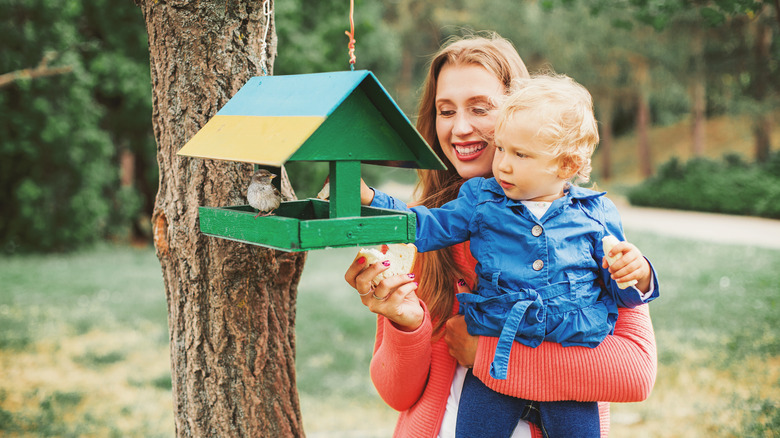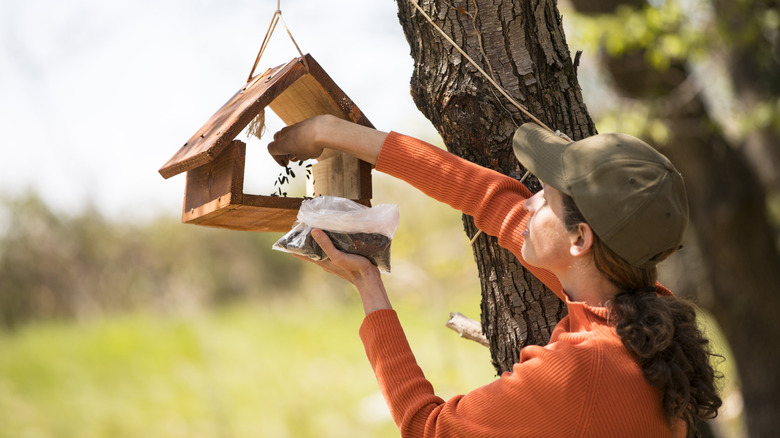Why You Don't Want To Put Bread In Your Bird Feeder
For years, people have been feeding birds scraps of bread while enjoying lunch outdoors, taking a stroll through the park, or even filling their feeders at home. Despite popular belief, however, this common carb isn't actually all that healthy for our winged friends and can even do more harm than good. Essentially, bread is like junk food for birds. It might taste good, but it carries little to no nutritional value. You might be thinking that this isn't that big of a deal — we all deserve a cheat day now and then — but the consequences are much more serious than simply packing on a bit of extra weight.
Birds are typically fairly small and need to be lightweight in order to be able to fly, so their bodies are optimized to survive on small amounts of nutritious foods. When they fill up their stomachs with bread, however, they lack the nutrients they need until the contents of their stomach digest, forcing them to find another meal. This can mean a day full of lethargy or, even worse, a night when a bird starves to death because it lacks the calories to keep its body warm.
What to provide instead
If you want to keep attracting winged visitors to the bird feeder in your yard, it's important to ensure you're allowing them the chance to properly fuel up for their day. What you should include in these mixes is dependent on your environment, the season, and the type of birds you're hoping to attract. Store-bought birdseed mixes are a solid choice if you're not sure exactly what you need yet. Try to make sure the feeder is full during times of the year when food is more scarce, like winter and early spring, and store some bird seed in case you notice that it's depleting faster than usual.
If you plan to make your own mix, look for sunflower seeds, millet, peanuts, suet cakes, and cracked corn during the colder months, and fresh fruit and dried eggshells in the spring. To ensure local populations thrive, it's also a good idea to leave out some nesting materials, limit your use of insecticides, and, of course, avoid supplementing feeders with human food like bread.

